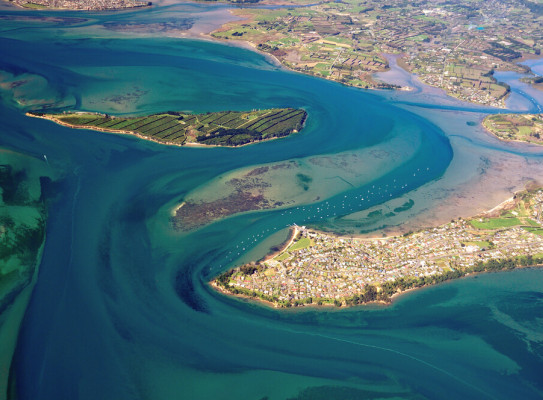Mitigate

We are mitigating the effects of island volcanic hazards by co-designing research outputs for use by government agencies, iwi, industry and communities.
Mitigating impacts from island volcanic hazards requires innovative identification, reduction and preparedness strategies. To reduce risk and increase preparedness, our research outputs must be useful, usable and used. But this doesn’t mean a one-size-fits-all approach, because we are communicating with diverse groups of people. Rather, our multifaceted mitigation strategy adopts the GFDRR framework and includes novel education and outreach methods, targeted advice, and tailored products.
We are co-developing new hazard, and impact-related map products to convey spatial information for landowners, land use planners and others. Creation of an explainable, online, probabilistic volcano “state of health” dashboard, that will be fed by GeoNET monitoring data and Bayesian network forecasting, to allow for dynamic decision making. Targeted engagement with hazard management advisors and related research programmes will accelerate integration of new information into existing national hazard and risk management systems
Hui, wānanga, workshops and public meetings are enabling individual interaction of stakeholders with researchers, and encouraging collaboration to inform and translate the physical science in the context of mātauranga Māori. Science-based gamification of volcanic hazards, developing “serious games” aim to engage rangatahi and improve evacuation planning by incorporating human decision making.
We are aligning our programme with learning goals for teachers, namely:
- Celebrate the value in pūrākau and kōrero about ngā maunga me ngā puia of the mana whenua rohe.
- Record and question observations using creativity and critical thinking on signs from Papatūānuku (soil, rocks, patterns in volcanic and seismic activity) and the nature of Rūaumoko and the world beneath us. Specifically, signs of coastal volcanic hazards.
- Display and actively prepare to communicate volcanic and coastal hazard data/observations and recommended actions appropriately to our community.
- Be prepared, be empowered and get involved with Kaitiakitanga, to help your community.
- Appreciate that anyone can be a scientist or emergency manager and it is ok to not have all the answers.
Watch to learn more about the educational volcano games we're developing: